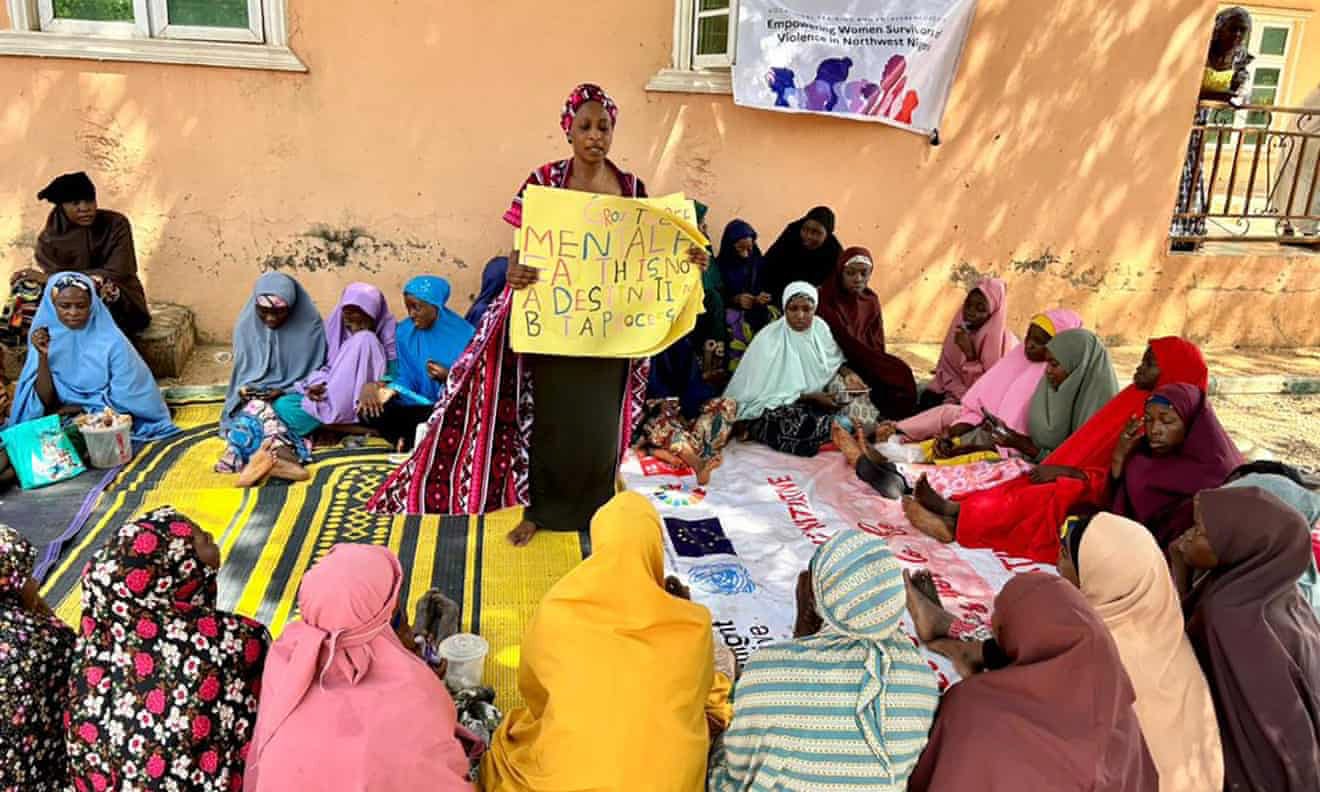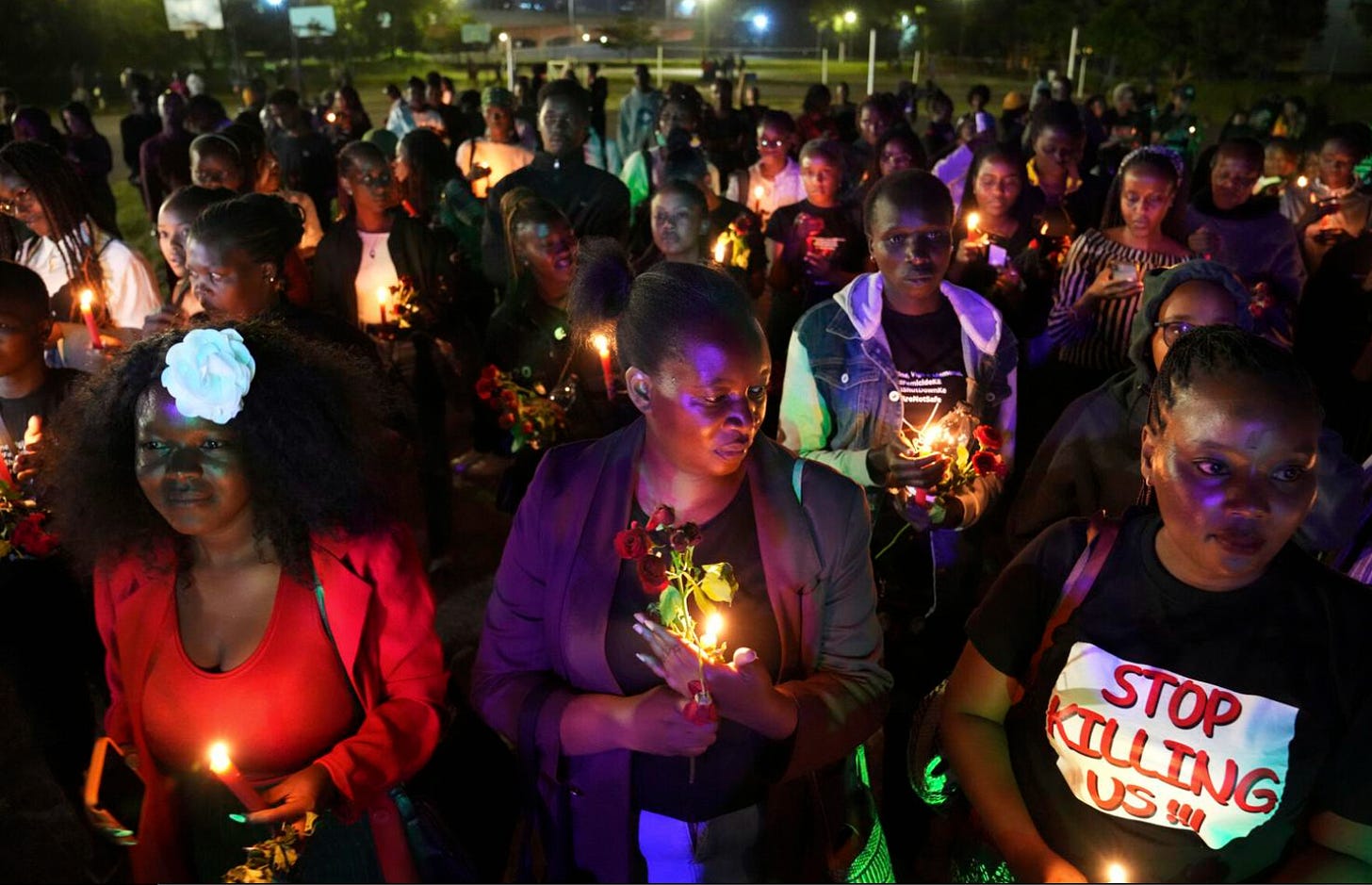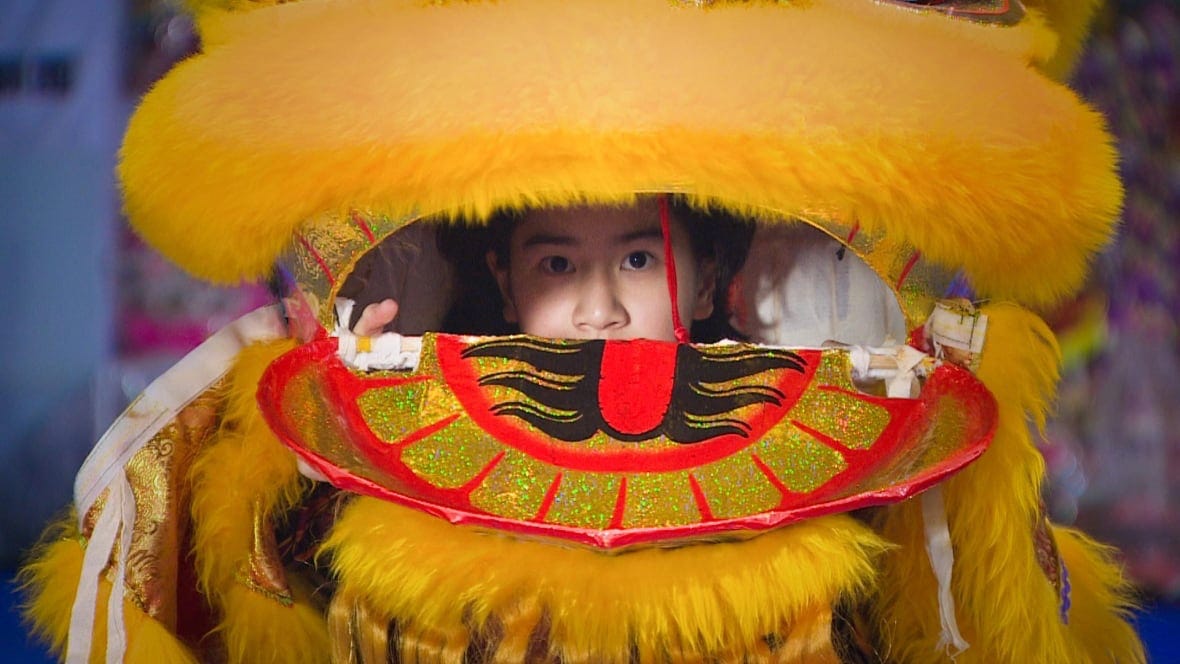Global Roundup: Nigerian School for Girls, Kenya Dark Valentine Vigil, ‘Everywhere is Queer’ App, Vancouver Women Joining Lion Dance, Kashmiri Fisherwomen
Curated by FG Contributor Inaara Merani
Women and girls who have been affected by violence or kidnapped by Boko Haram are offered trauma counselling and support. Photograph: Courtesy of Neem Foundation. (The Guardian)
Since 2010, the Boko Haram militant group has murdered and abducted thousands of schoolchildren and dozens of teachers. The Lafiya Sarari school in Maiduguri, the capital of Borno state in Nigeria, was established in 2017 to support survivors of Boko Haram attacks.
The school was founded by the Neem Foundation, a Nigerian charity which supports communities affected by violence. The Lafiya Sarari school was designed to provide support and education to individuals who had experienced and suffered from trauma due to Boko Haram attacks.
Initially, the school curriculum was envisioned as a model of reconciliation and restorative justice, where victims, perpetrators, and security forces could receive education together; however, escalating conflict disrupted traditional learning in Nigerian schools and the plan for the Lafiya Safari school shifted. Schoolgirls between the ages of 11 and 14, from displaced communities and refugee camps, were interviewed and later began their schooling.
According to Yakubu Gwadeda, deputy head teacher at Lafiya Sarari, many of the girls arrived fearful and distrustful, they struggled to form friendships with other children, and they often resorted to violence for the smallest of issues. As many of the girls had recently been freed from captivity, many required trauma support as well and began therapy alongside their studies.
They went through intervention sessions, coping, resilience, expressive therapy. Some could not talk about their experience but we got to hear their stories through drawings and music. Sometimes, they would come to the sessions and not say a word, and we would have to reschedule. I told them that you don’t have to be a soldier or hold a gun for revenge. Education can be their revenge. – Hauwa Abdullahi Zainadine, school counsellor
Funding for 100 girls was provided by the US Catena Foundation, in which students learned together; however, as they progressed in their studies, the program grouped schoolgirls together based on academic achievement. Thus far, 30 students have successfully passed national exams and are preparing to begin university later this year.
Women hold candles and flowers during a "Dark Valentine" vigil to demonstrate against the rising cases of femicide, in downtown Nairobi, Kenya, Wednesday, Feb. 14, 2024. According to Kenya police, at least 16 women are thought to have been killed by their partners since the beginning of this year. Brian Inganga - staff, ASSOCIATED PRESS
Hundreds of people gathered in Nairobi, Kenya on Valentine’s Day to participate in a vigil to protest the rising femicides in the country. With over 16 cases of femicide reported since the beginning of 2024, the “Dark Valentine” vigil created a space where individuals could honour the lives of the women who lost their lives, and raise awareness about this ongoing issue.
This Valentine’s Day protest comes just weeks after thousands of people marched in cities and towns across Kenya to demand an end to femicide, the largest protests ever held against gender-based violence in the country. On a day designed to celebrate love, protesters dressed in black, lit candles, chanted the names of the women who were killed, and held red roses in their honour.
We are losing so many women, so many girls. So today most of us have set our plans so that we come here with fellow women, fellow ladies, fellow feminist leaders to ensure that we end femicide. – Merlin Kawira, student and founder of Africa Arts and Mental Talks, an on-campus mental health support group
In an interview, student and human rights activist Debora Momanyi said that she preferred to be protesting on the day of love because every day, women are losing their lives and there is little action that has been taken by the government to prosecute cases of femicide or to raise awareness about the impact of femicide. She also said that today, it is someone else who has lost their life, but tomorrow it could be her.
Everywhere is Queer app wants to help queer, trans, and allied communities find space. Credit: Mashable composite; Everywhere is Queer/ Charlie Sprinkman / AerialPerspective Images / Moment / Getty. (Mashable)
‘Everywhere is Queer’ is an app that was created to celebrate and support LGBTQ-owned businesses, queer-friendly artists and advisors, and inclusive community spaces. It also provides consumers with a tangible way to support local and boycott large multinational corporations which enable and fund the multiple ongoing genocides worldwide.
This app provides on-the-go discoverability for LGBTQ-owned businesses around the world. Although the majority of the app’s spots currently exist in the continental US, the database is constantly updated to include as many spaces as possible.
Users simply make a profile and log into their account, where they will immediately see the ‘Everywhere is Queer’ map with small green markers representing LGBTQ-owned spaces. There are also other tabs where individuals can browse through online-only options and another which organizes any listings that were favourited.
The creation of ‘Everywhere is Queer’ as a resource hub stems from the LGBTQ community’s legacy of mutual aid and support. Whereas the app started a few years ago as a community-organized directory of queer-owned businesses using Google Maps and a spreadsheet, it has now become an entity with over 9000 business entries including therapists, legal and financial support, tattoo artists, queer events, as well as other categories such as queer-serving community groups.
The company’s Instagram page has more than 140,000 followers without using any paid advertisements or any venture capital funding, simply from a tight-knit community of thousands of LGBTQ users and supporters who have spread the word about this app. ‘Everywhere is Queer’ also has a blog and newsletter in which businesses in the directory are highlighted.
It's those little experiences that queer and trans people deserve. Everywhere is Queer is not just Charlie. This is thousands, hundreds of thousands, if not millions of people that are seeking community. To every person that shares my platform, I say you're helping other people. You're not just helping me, you're not helping yourself, you're helping other queer and trans people to feel seen and heard. – Charlie Sprinkman, founder and creator of ‘Everywhere is Queer’
Teagan Lee, 12, says lion dancing helps her develop friendships. She's among a growing number of women and girls getting into the traditional dance. (CBC News)
A number of young girls and women in Vancouver, Canada are learning lion dance, a traditional dance in Chinese culture. According to lion dance coach Eugenia Chau, the dance is performed during festive occasions, such as Lunar New Year, in order to symbolize prosperous times and chase away evil spirits.
The practice has been dominated by men for centuries which experts say is due to different reasons, including the requirement of stamina, strength, and precision that is required in martial arts skill. However, many women and girls have challenged stereotypes and have started participating in the dance, saying it helps them connect to their culture and feel empowered. These women also appreciate how this experience has given them the opportunity to encourage other women to embrace the ancient art and challenge stereotypes about who can engage in this art.
Chau, a coach in Vancouver, says that there has been at least a 70 percent increase in women joining her team in the last five years, as there are now 20 women out of 30 members. On her team, individuals learn lion dancing, which is performed by two people who move the head and tail of the lion, and dragon dancing, which involves at least nine dancers.
Over the years, there have always been reasons given why women could not participate in lion dancing, but there have always been women who challenged the stereotypes and participated anyways. At the Hon Hsing Athletic Club of Vancouver, there is a framed photo of an all-women’s lion dancing team from the 1930s who began lion dancing to raise money for war relief efforts when Japan invaded China. The success of their team led to the establishing of a club where women and men would practice martial arts and lion dance, and still do.
I think all it takes is training and dedication and practice. It's a really empowering message, but also I think one that's been different in the past. – Tessica Truong, lion dancer at the Chau Luen Athletic Club
Featured Image Source: YouTube. (Feminism in India)
Everyday, Kashmiri fisherwomen sit on the overcrowded sidewalks of streets and bridges, in markets, and sometimes in villages far away to sell their fish. Just as the fishing community in Kashmir is one of the oldest communities in the valley, Kashmiri fisherwomen have existed for centuries, but their existence and their struggles are often overlooked.
I have been sitting here for decades now, even when there is a firing or snow, I am here, what can I do? – Jaana Ded, one of the oldest Kashmiri fisherwomen
Kashmiri fisherwomen are often referred to as ‘Gaz Hanz’ or ‘Gad Wajni’. Their profession is a manifestation of their caste, and they have been limited to their caste-based profession for centuries. Falling short of segregating the community based on status, Kashmir’s caste-based society enables hierarchies and systemic discriminations. Their job is not always regarded highly, as many in Kashmir believe that men should be the sole bread earner.
These womens’ unique position in the Kashmiri market sometimes puts their safety at risk, as the region has always been rampant with armed violence, shutdowns, and other uninhabitable conditions. Despite the risks, the fisherwomen conduct their business as usual everyday, as fishing is their sole source of income. Any disruption in their businesses can lead to severe consequences for themselves and their families.
One fisherwoman, Shabeena, discussed the difficulty about the fishing community in Kashmir. As men sit idly during the day and catch fish during the night, the business depends on women to sell during the daytime in the markets and to also frequently help the men catch fish. Due to patriarchal and gender norms in Kashmiri society, many of these women finish their days working to go home and support household domestic chores, or it is passed on to their daughters or granddaughters.
Most of the Kashmiri fisherwomen want to get out of this profession and want to find better-paying, more stable work in the public service, but there is little support provided by the government. The job they have is not one they chose or that they want to continue doing, fishing is a generational profession that is passed down. Still, they go out everyday into the markets and sell fish in order to support their families.
Inaara Merani (she/her) recently completed her Masters degree at the University of Western Ontario, studying Gender, Sexuality, and Women’s Studies with a specialization in Transitional Justice. In the upcoming years, she hopes to attend law school, focusing her career in human rights law.
Inaara is deeply passionate about dismantling patriarchal institutions to ensure women and other marginalized populations have safe and equal access to their rights. She believes in the power of knowledge and learning from others, and hopes to continue to learn from others throughout her career.







